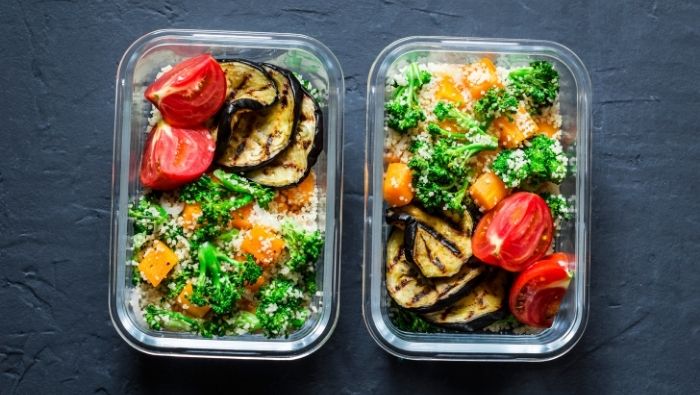Smart Food Storage That Can Save You Money and Time in the Kitchen

With these quick, smart food storage tips, a few minutes today can save you both time and money tomorrow.
I’m not a big fan of kitchen clean-up.
When dinner’s over, the soup pot goes straight into the fridge rather than into a plastic container, and I’d rather scrub the toilet than scrub the dishes that quickly pile up in our dishwasher-free kitchen. I’d rather get it done and move on.
But, lately, I’ve found a few alterations in food storage, though they might take an extra five minutes, which saves me considerable time and money later.
Buy It Large and Store It Small
If you’re shopping for one or two people, those great deals on family-size meat are hard to pass up, even if it’ll take you a while to get through three pounds of beef.
Divide the meat into portion-sized pieces and wrap each tightly in aluminum foil before putting them into the freezer. That way, when you go to cook, you don’t have to cook it all at once or try to saw off a frozen portion.
If you’re really organized, or if your freezer is particularly disorganized, label and date the meat when you put it in.
Don’t Cook It All at Once
Do you love to bake (or eat) baked goods but don’t want three dozen cookies sitting around the house?
Freeze your cookie dough and bake as much or as little as you want, when you want it. Also, most muffin batters will keep in the refrigerator for up to a week.
Sign Up for Savings
Subscribe to get money-saving content by email that can help you stretch your dollars further.
Twice each week, you'll receive articles and tips that can help you free up and keep more of your hard-earned money, even on the tightest of budgets.
We respect your privacy. Unsubscribe at any time.
Store Up When It’s in Season
Bell peppers, those brightly colored, vitamin-rich vegetables whose prices shoot up in winter, freeze beautifully. Buy as much as you can in early fall from the grocery store or farmers’ markets.
In high season at my farmers’ market, I can get two to five bell peppers for a dollar, depending on the color. Then, I freeze them for later use.
Declare your own pepper-chopping party. Freeze the raw chopped or sliced peppers in Tupperware or plastic bags. When a red bell peppers are going for big bucks in January, you’ll be liberally tossing them into all of your favorite dishes.
Slice It Up the Night Before
It’s a wonderful idea when making a roast for dinner to buy one bigger than you need and eat the leftovers as lunch meat. It’s definitely a money saver.
But, when I’m packing my lunch at 6:30 in the morning, the last thing I want to do is pull out the roast and the carving knife. Cutting the roast into sandwich-friendly slices before you put it away the night before cuts down on effort in the morning, making it more likely that you’ll pack a healthy and tasty lunch instead of swinging through the drive-through.
The same goes if you make your own bread. Always cut a few pieces ahead. If you wrap it up tight in a plastic grocery bag, it won’t dry out.
Related: How To Reduce the Cost of Lunch Meat
It’s All About the Packaging
Leftovers for tomorrow?
Rather than putting your leftovers into one big container, divide them into lunch-sized portions in smaller containers you can bring to work with you. Tomorrow morning, grab it and go.
Reviewed December 2023
Popular Articles
- 7 Habits of Highly Frugal People
- 5 Simple Budget Cuts That Can Save $200 a Month
- How to Track Down Unclaimed Funds Owed You
- 32 Ways to Save Money on Your Utility Bills
- Do You Need Credit Life Insurance When Buying a New Car?
- How to Maximize Profits When Selling Online
- Staying Motivated to Continue Digging Yourself Out of Debt
On After50Finances.com
- 9 Things You Need to Do Before You Retire
- You Didn’t Save Enough for Retirement and You’re 55+
- When Empty Nesters Reorganize and Declutter Their Home
- Reinventing Your Career in Your 50s or 60s
- What Mature Homeowners Should Know about Reverse Mortgages
- 2 Reasons to Collect Social Security Benefits As Soon As Possible


